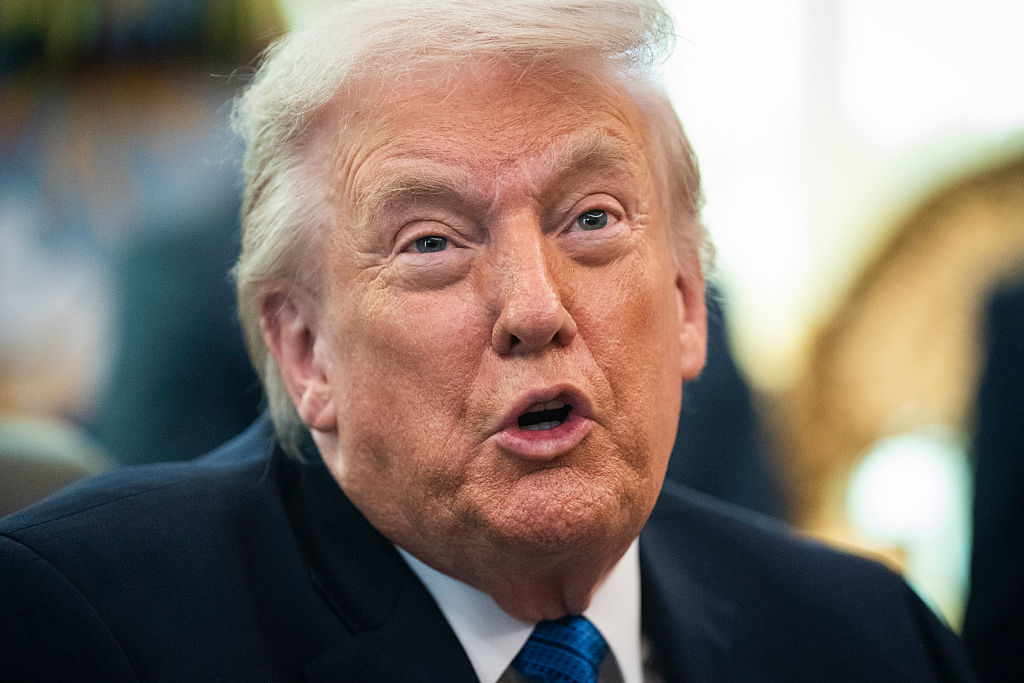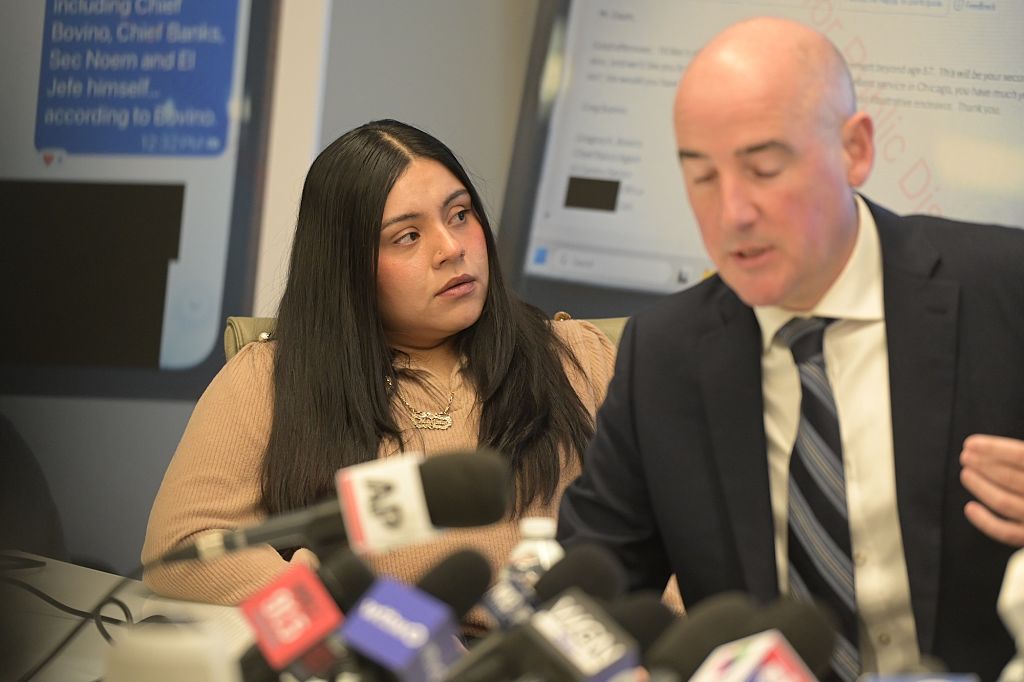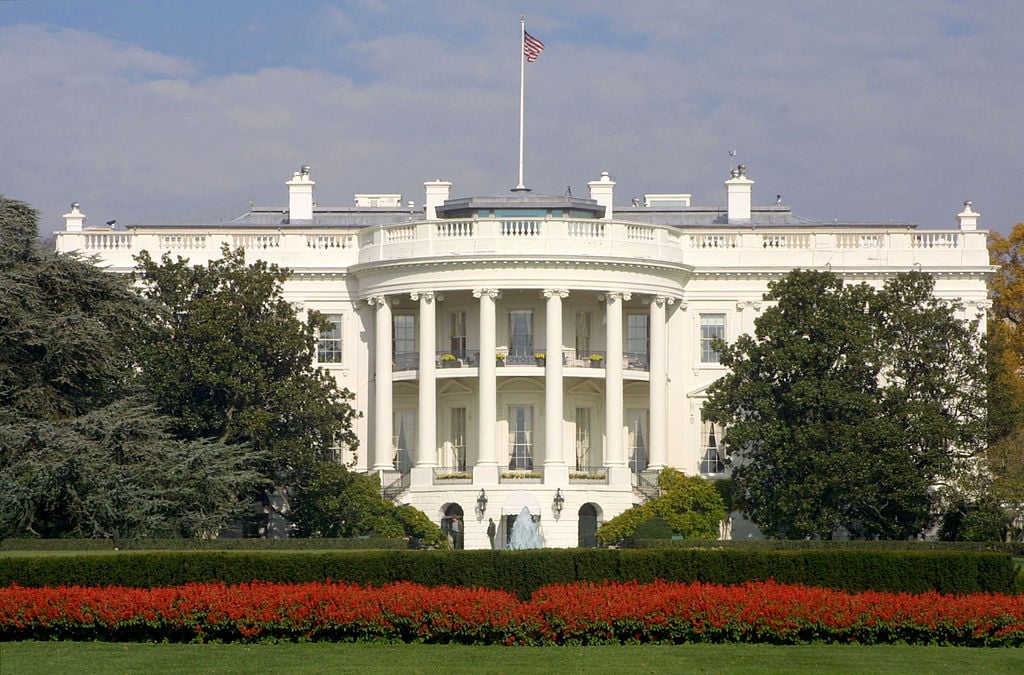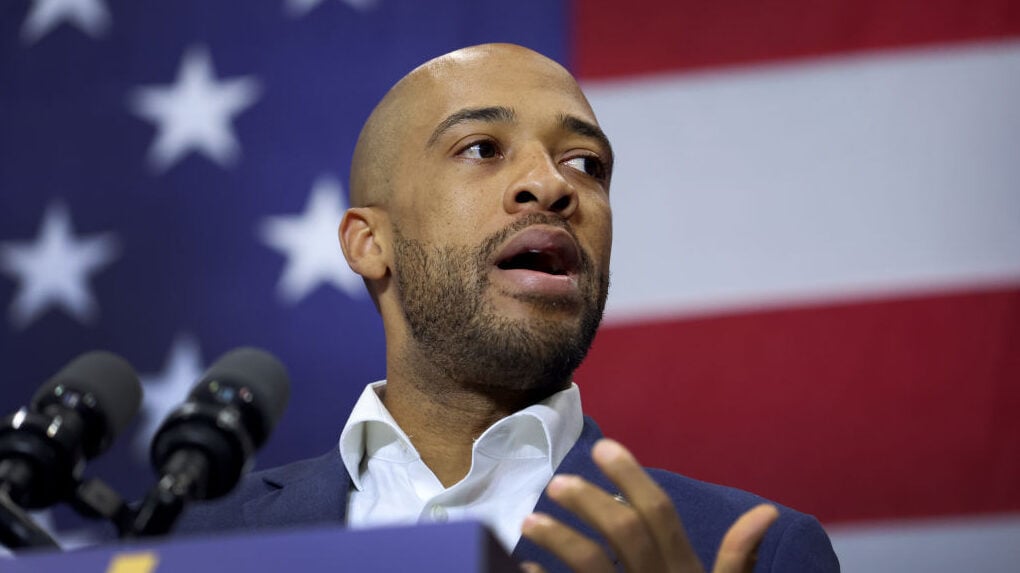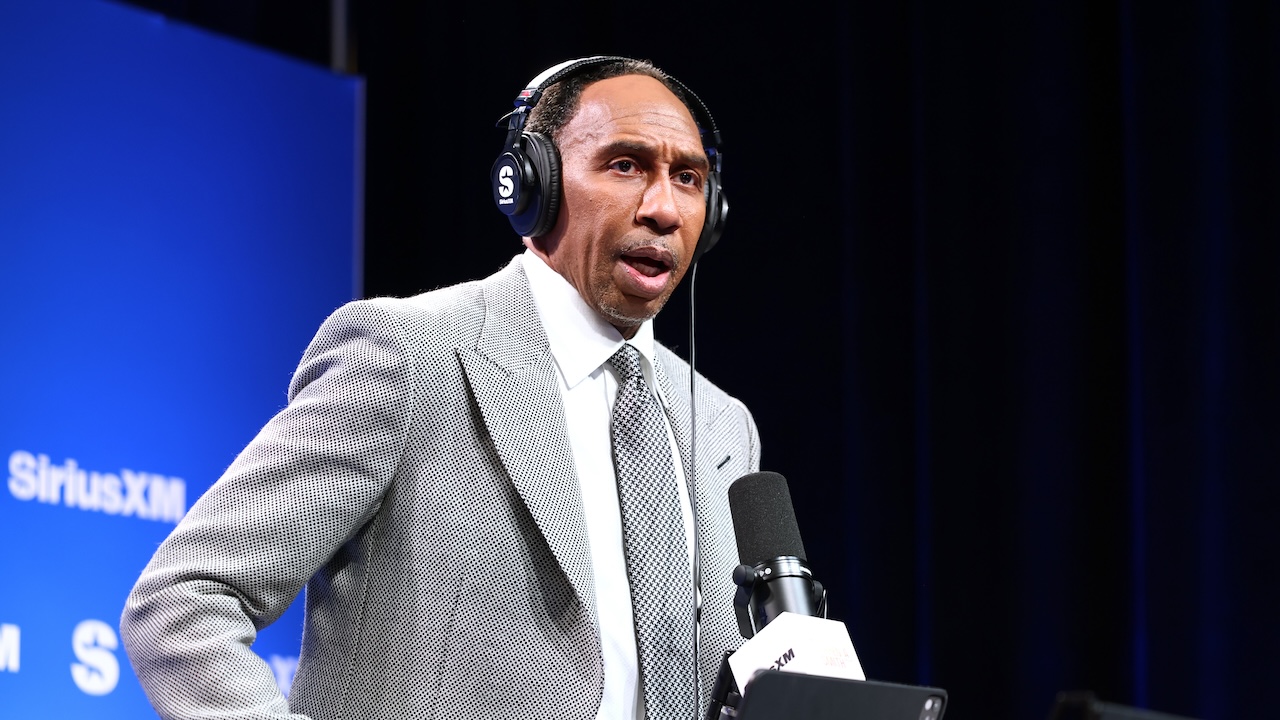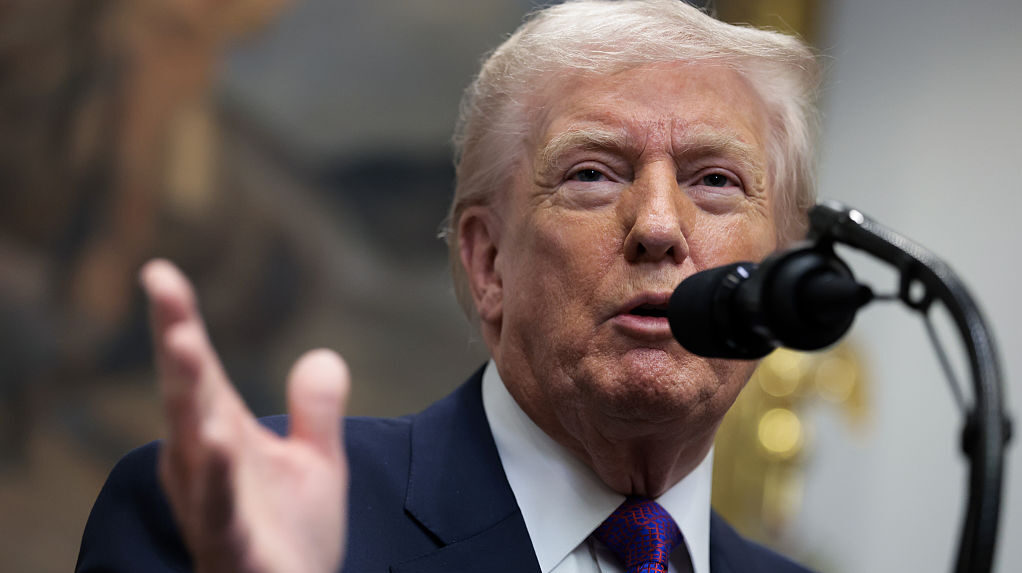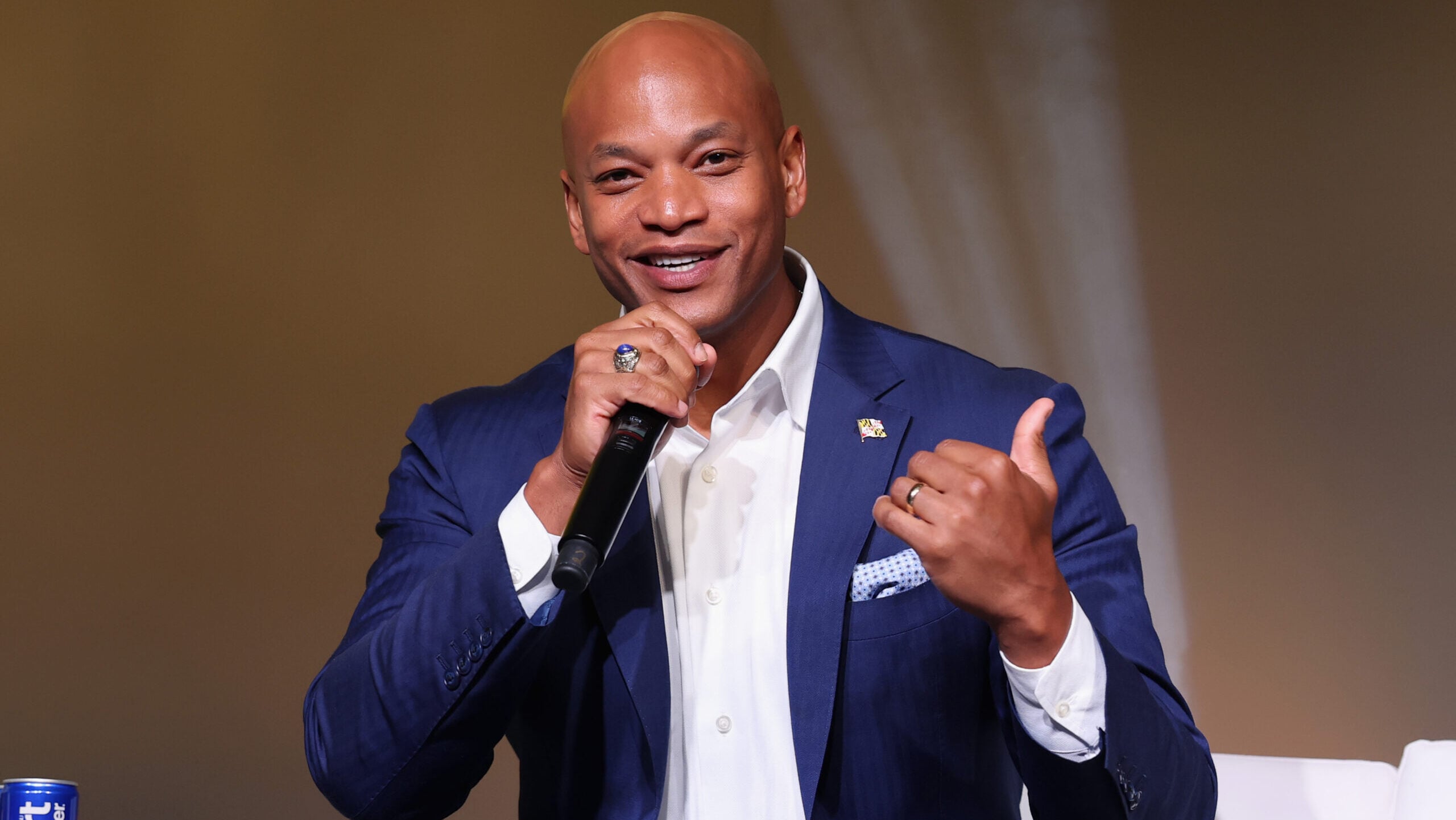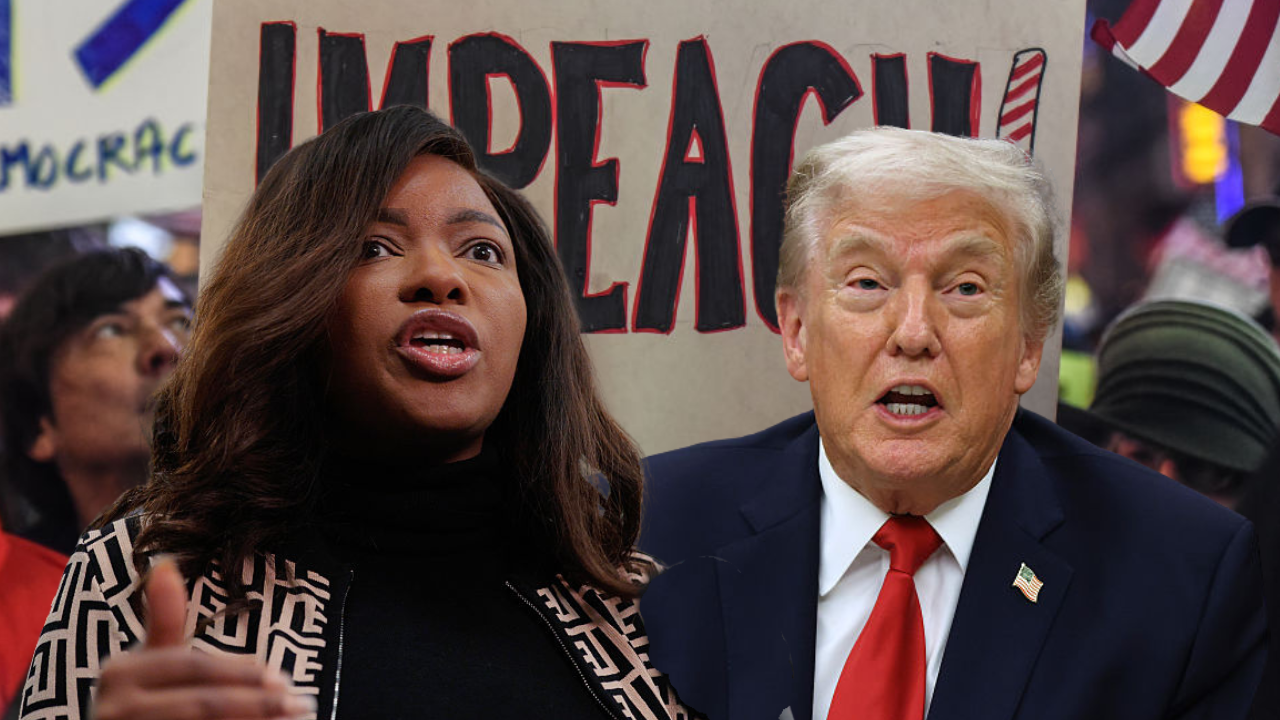Trump’s trend of targeting prominent Black women, like Letitia James, explained
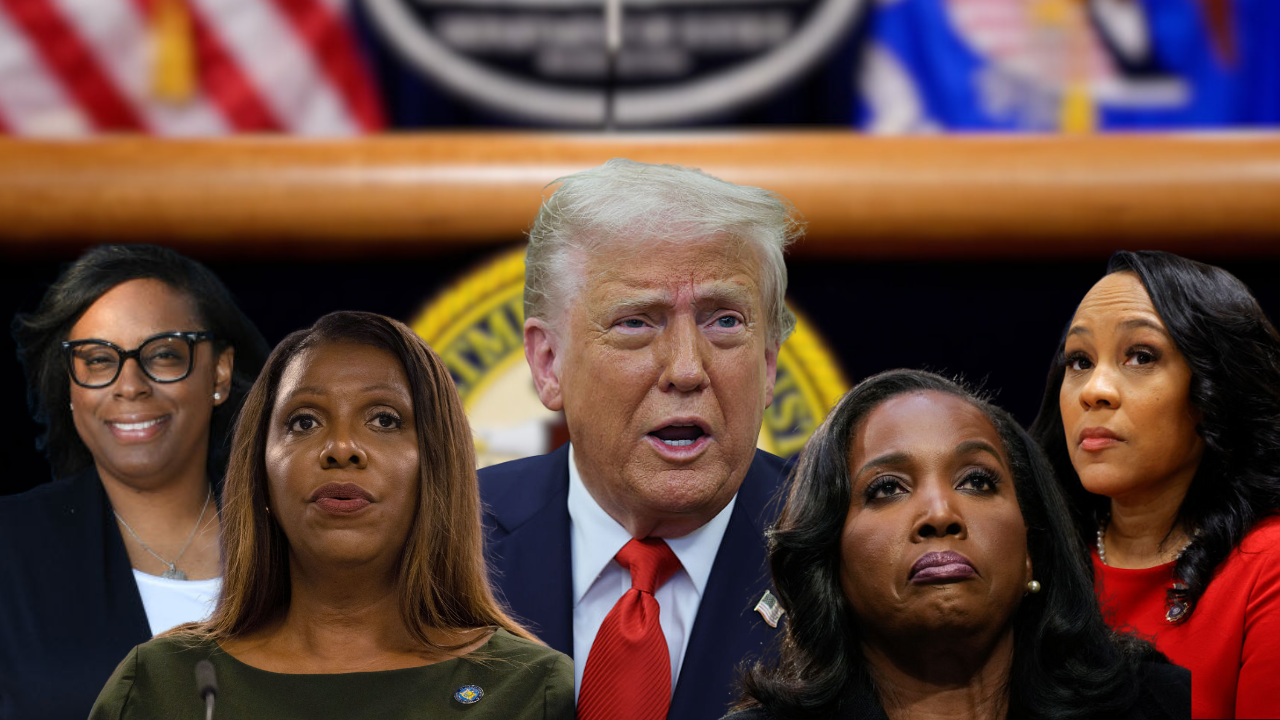
“It’s just the continuation of his hatred toward Black women and Black people,” former Obama White House aide Michael Blake tells theGrio.
President Donald Trump‘s vow to go after his political enemies came to a head on Thursday when his Justice Department announced the indictment of New York Attorney General Letitia James.
James, who was charged with mortgage fraud, maintains that she did not commit any crime and slammed the president for his “desperate weaponization of our justice system” and “grave violation of our constitutional order.”
While the targeting of James is being condemned as part of a growing trend of political retribution in which Trump is using his second term presidency to go after Democrats he deems his political enemies, others see another trend: the targeting of prominent Black women in politics.
“It’s just the continuation of his hatred toward Black women and Black people. From Tish James, to Lisa Cook, to Fani Willis, over and over again, this is Donald Trump,” said Michael Blake, a former Obama White House aide who serves as CEO of KAIROS Democracy Project. He told theGrio, “You can’t be surprised when a man calls for political revenge that he takes these kinds of actions.”
Blake slammed the “cowardice” of Republicans in not speaking out against Trump’s use of the Department of Justice to try to or threaten to jail his political enemies.
“You have a Republican Party that refuses to fund the government because they want to take your health care away. You have a president who cares not about helping you with groceries but cares about grudges,” he said.
“It is quite appropriate and fitting that in his latest act of cowardice, of going after Tish James, where he fired someone because they wouldn’t go after her, but the very next day, he lost on the Peace Prize he thought he was going to get. Justice was actually served.”
Here is a list of the Black women that President Trump and his administration have gone after since taking office this year.
Letitia James
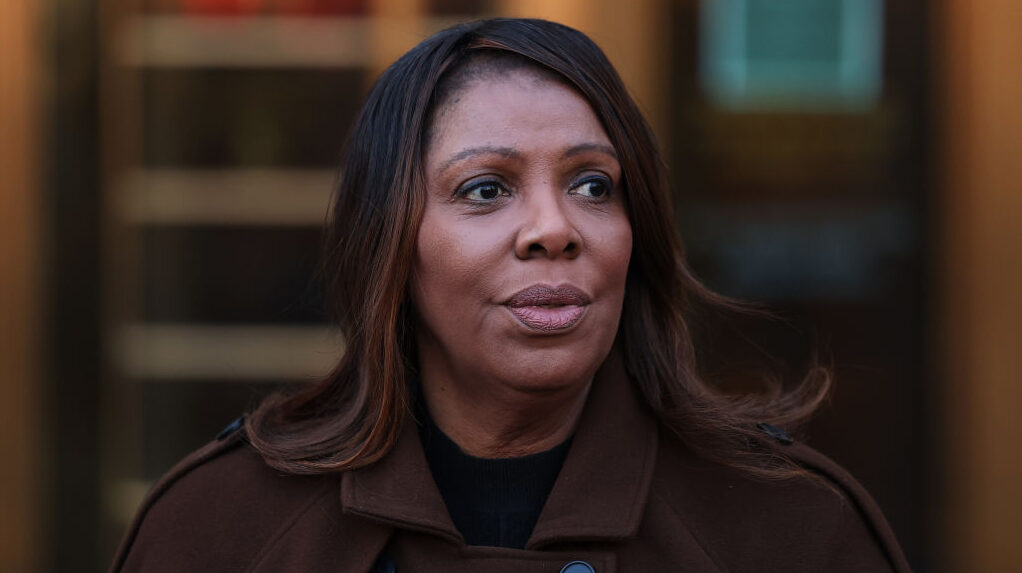
On Oct. 9, the Trump Justice Department announced that it had indicted Letitia James, New York’s first female and African American attorney general.
James is accused of committing mortgage fraud over a Virginia property she owns. According to the New York Times, the Eastern District of Virginia alleges that James falsely claimed in loan documents that she would use a home she purchased in Norfolk as a secondary residence. Instead, the indictment alleges, she used it as a rental investment property and received loans with “favorable terms that would save her close to $19,000.”
James called the indictment “baseless” and has maintained she did nothing wrong.
Citing the president’s own statements, New York’s top prosecutor said the charges brought by the Trump administration are nothing more than “political retribution” for her successful prosecution of Trump for business fraud.
“He is forcing federal law enforcement agencies to do his bidding, all because I did my job as a New York State Attorney General,” said James, who noted that Trump fired a U.S. attorney who refused to bring charges against her, only to replace the prosecutor with someone who is “blindly loyal not to the law but to the president.”
James said she stands “strongly” behind her office’s litigation against the Trump Organization.
“We conducted a two-year investigation based on the facts and evidence, not politics. Judges have upheld the trial court’s finding that Donald Trump, his company and his two sons were liable for fraud,” she asserted.
While a grand jury indicted James, it is no indication that the U.S. government will come out victorious in the case against James. Prosecutors have incredible sway in grand juries, which are conducted in secrecy, and defense lawyers are not permitted to present their evidence.
James said, as a woman of faith, she knows that “faith and fear cannot share the same space,” adding, “I’m not fearful; I’m fearless.”
“As my faith teaches me, no weapon formed against me shall prosper. We will fight these baseless charges aggressively,” she said.
Fani Willis
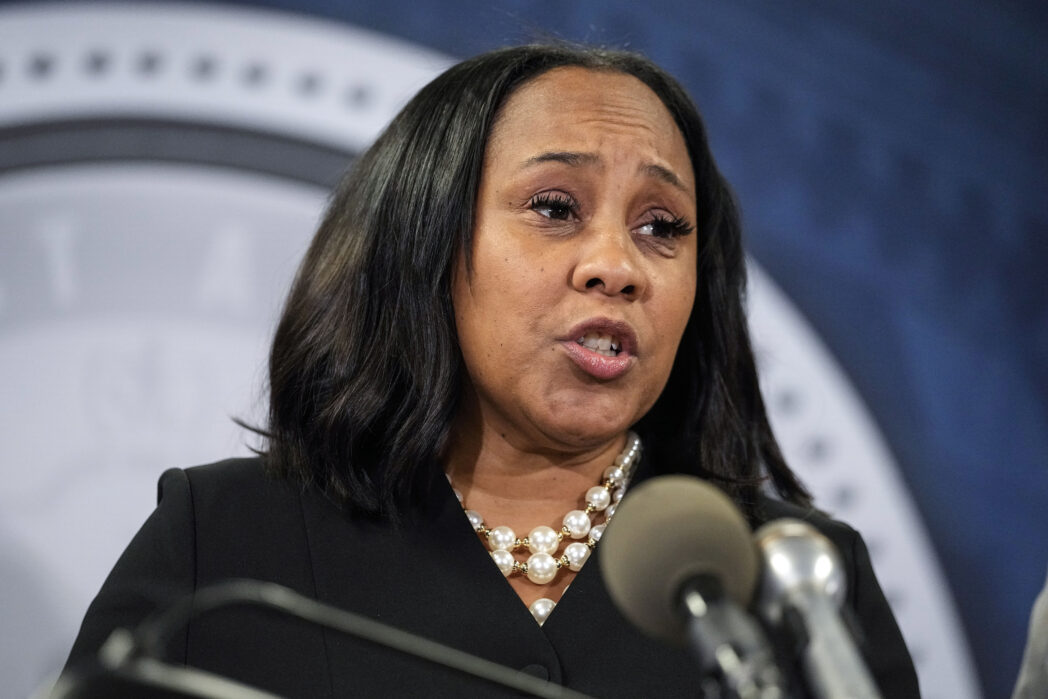
In late September, the Trump Justice Department subpoenaed records related to the travel history of Fulton County District Attorney Fani Willis, who, in 2023, indicted Trump and 18 others for engaging in a “criminal enterprise” to illegally return Trump to office after his 2020 defeat.
Willis accused Trump, who peddled false claims that the 2020 presidential election was “stolen” from him due to voter fraud, of “attempts to interfere in the administration of Georgia’s 2020 presidential election.”
The Georgia prosecutor accused Trump and his co-defendants of taking “various actions in Georgia and elsewhere to block the counting of the votes of the presidential electors who were certified as the winners of Georgia’s 2020 general election.”
Trump infamously called Georgia Secretary of State Raffensberger after the 2020 election to demand that he “find 11,780 votes,” which would have reversed his loss in the state.
Willis’s case against Trump hit a snag after defense attorneys asked a judge to remove Willis from the case because of a romantic relationship with the case’s special prosecutor, Nathan Wade. After much scrutiny into their personal lives, Wade resigned, and Willis was allowed to continue leading the case.
In December 2023, an appeals court disqualified Willis, citing that the trial court “erred by failing to disqualify DA Willis and her office.” Willis appealed the decision and asked to be reinstated; however, Georgia’s Supreme Court denied her appeal.
Willis’s criminal prosecution of Trump was one of four criminal cases against him, two of which were led by special prosecutors appointed by the DOJ. The two federal cases related to Trump’s attempt to overturn the 2020 election and the withholding of classified documents were dropped upon his re-election.
Though the case in Georgia was stalled due to Willis’s disqualification, Trump was found guilty in another criminal case brought by New York Manhattan District Attorney Alvin Bragg.
Lisa Cook
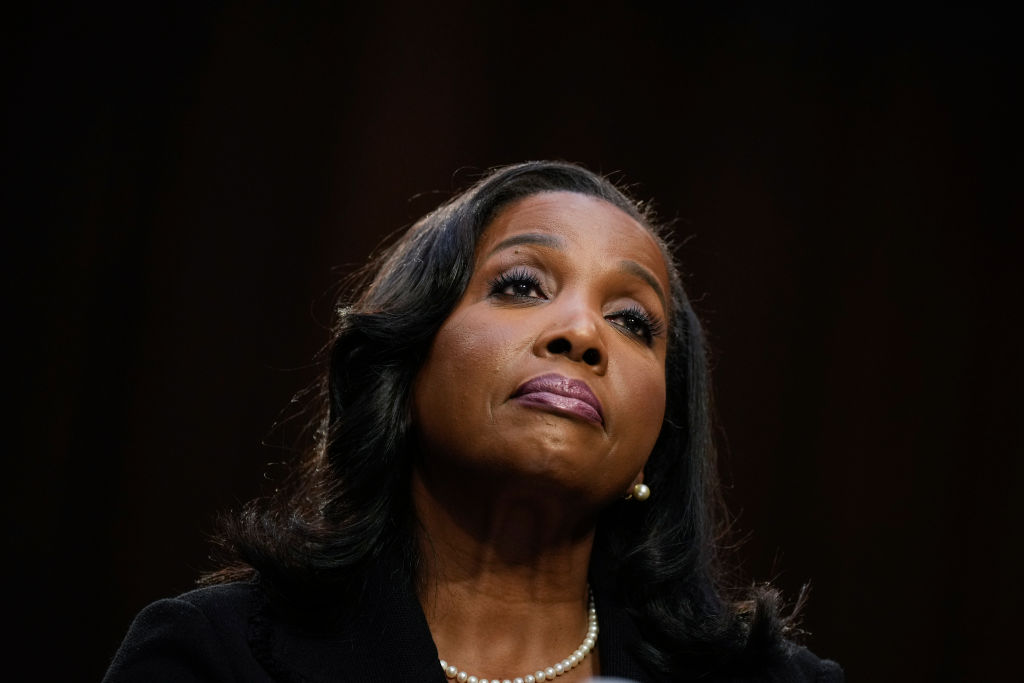
On Aug. 25, President Trump attempted to fire Federal Reserve Bank Board of Governor Lisa Cook, accusing her of mortgage fraud, similar to the accusations against Letitia James.
The accusations against Cook, the first Black woman to serve on the Fed board–first lodged by Bill Pulte, Trump’s director of the Federal Housing Finance Agency–launched a criminal investigation by the Justice Department.
Cook, who has not been charged with a crime, has maintained she did no wrong and successfully challenged Trump’s attempted termination in federal court.
The effort to unseat Cook gave Trump an opportunity to reshape the Federal Reserve’s seven-member board, which was designed to be an independent economic policy body that is free from politics. No president has fired a sitting Fed governor in the agency’s 112-year history.
A federal judge ruled that the removal of Cook was illegal and reinstated her to the position. An appeals court upheld that decision. The Trump administration appealed to the U.S. Supreme Court in a last-ditch effort to remove Cook. The nation’s highest court allowed Cook to remain as board governor as it prepares to hear oral aguments in the case in January 2026.
An investigative report from ProPublica found that at least three members of Trump’s Cabinet have similarly listed multiple homes as their primary residences based on mortgage records. Primary residences typically see lower interest rates than those that are not.
LaMonica McIver
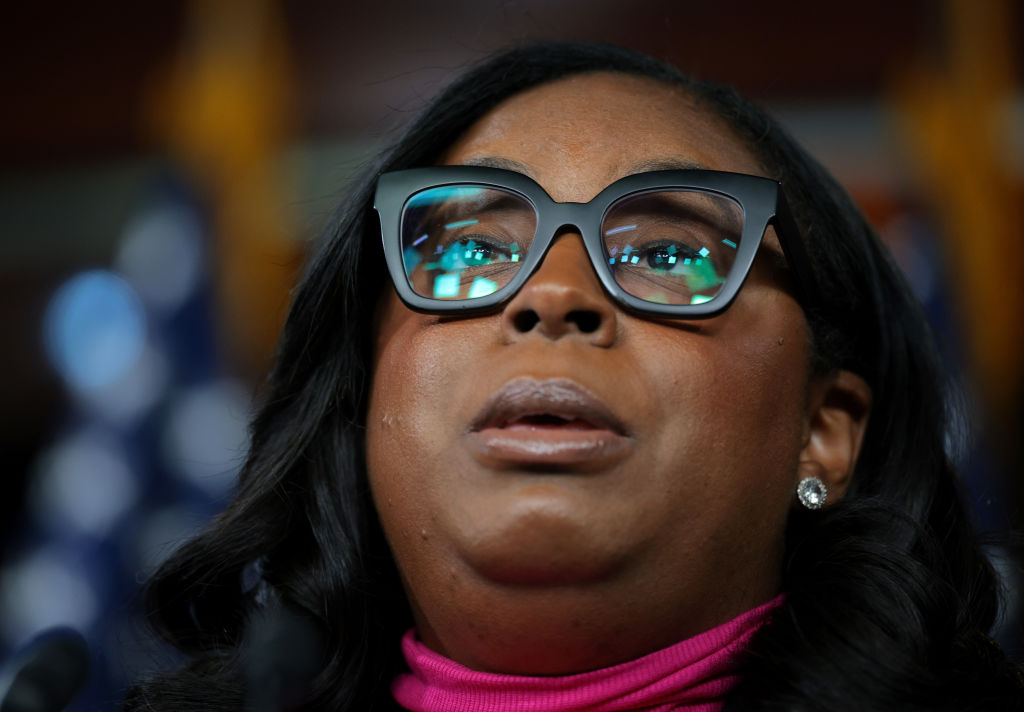
U.S. Rep. LaMonica McIver, D-N.J., was indicted by the Trump administration on June 10 for an encounter she had with federal agents outside an ICE facility in Newark, where she was conducting a congressional oversight visit.
McIver, a 39-year-old freshman congresswoman, faces up to 17 years in prison for a May altercation outside of a Newark ICE detention facility, where she and two other members of Congress were joined by Mayor Ras Baraka.
The encounter with federal agents was chaotic, as McIver attempted to shield Baraka from being arrested for trespassing. Baraka’s charges were ultimately dropped, and the judge overseeing the case scolded the U.S. Attorney of New Jersey, Alina Habba, for bringing the “hasty” and “embarrassing” prosecution.
McIver was ultimately still charged in a historically rare criminal case for a sitting member of Congress.
“The facts are on my side…I have no doubt that I will be victorious,” McIver previously told theGrio shortly after leaving a New Jersey courthouse where she was arraigned in June for her three-count indictment, for which she is accused of “forcibly impeding and interfering with federal officers.”
“Me being the one person picked out to be charged, definitely speaks to me being a young Black woman, and basically speaking up and speaking out about what they were doing and how they treated us,” McIver told theGrio. The congresswoman dismissed her prosecution as an “intimidation tactic” to “humiliate” her.
In August, McIver’s defense attorneys moved to dismiss the case against her, accusing the Trump Justice Department of selective and vindictive prosecution. She also argued that she cannot be charged for official acts.
What’s more, McIver said that the DOJ is demonstrating “unconstitutional differential treatment” by pursuing charges against her after dropping cases against over 160 other Jan. 6 defendants who were accused of the same crime. Trump pardoned more than 1,500 accused Jan. 6 rioters on the first day in office during his second term.
“There is a simple difference between this prosecution of Congresswoman McIver and the 160 cases involving assault against federal officers on January 6 that the Justice Department has dismissed: it is all about politics and partisanship,” a dismissal motion reads.
What's Your Reaction?
 Like
0
Like
0
 Dislike
0
Dislike
0
 Love
0
Love
0
 Funny
0
Funny
0
 Angry
0
Angry
0
 Sad
0
Sad
0
 Wow
0
Wow
0




